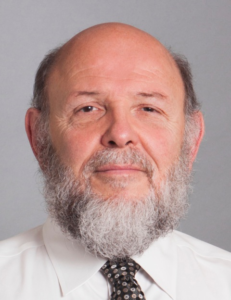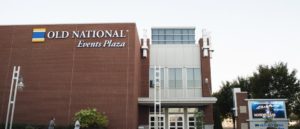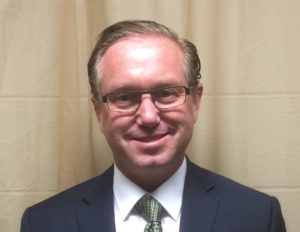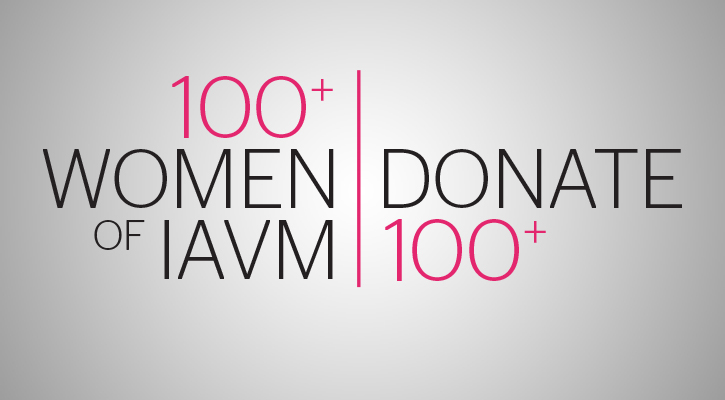Safety & Security Experts Share Thoughts On IAVM Webinar Panel
Four experts in the field of safety and security took to a panel Thursday to lead an IAVM webinar on Understanding the Risk & Securing Mass Gathering Events. The webinar drew a large audience of 558 listeners and later participants who had several questions to ask of panel members following the 45-minute webinar.
Much of the interest in the webinar was likely drawn from the recent terrorist attack outside the Manchester Arena in the United Kingdom, but suffice to say that safety and security are ongoing hot topics and will continue to be in a time when IAVM President/CEO Brad Mayne, CFE, pointed out that we no longer live in a “not if, but when” time, but actually now reside in the “when” regardless of our geographical location.
“The British continue to investigate whether the incident there was a lone wolf or terrorist cell,” said panelist Bill Flynn, GARDA Risk Management. “Due to the sophistication of the device it suggests the possibility of a network. He targeted two main egress points to minimize the detection and maximize the casualties.” Twenty-two were killed in the attack and dozens injured.
Flynn noted a shift from centrally coordinated attacks in homegrown situations to lone wolf attacks, citing that there were 16 homegrown violent terrorist arrests last year in the United States. Flynn added that last year 423 incidents took place domestically and internationally with close to 50 percent of those happening within 30 miles of where the attacker lived.
“No community is immune,” he said.
IAVM veteran Russ Simons, Venue Solutions Group, spoke on Threat, Risk and Vulnerability Assessments.
“Our venues have emergency plans,” he said, “but they are not revisited regularly. We underestimate the opponent’s skill, intelligence and cunning.
Simons noted that in 2015 there were more than 1,600 reported bomb threat incidents and more than 400 actual bombings that year.
“All of these assessments are critical to do,” he said. “Without doing them, you are setting yourself up for something bad to happen. And it will happen in some form or another.”
Al Shenouda, City Shield LLC, who along with Flynn has been working closely with IAVM on the Emergency Management Safety & Security Initiative (EMSSI) for convention centers, spoke about the importance of public and private partnerships to counter the foe.
“It takes a collaboration of multiple stakeholders to do information sharing,” he said. “Think of everyone as good security for soft targets.”
Andy Jabbour, Gate 15, wrapped up the webinar by striking a parallel between buying insurance and the uncertainty that venues face going forward with respect to safety and security.
“Like insurance, risk assessment can’t be ‘one and done,'” Jabbour said. “You understand the threat environment. Like insurance, you pay every month.”
Before fielding a series of questions from webinar attendees, Shenouda closed the panel comments by noting “We’ve had attacks and thwarted attacks in every state.”
Every state. It is something that should sink in for every venue manager if it has not already.
100+ WOMEN of IAVM, THANK YOU
THANK YOU for being rock stars and always supporting your IAVM Foundation.
For 35 years the Foundation has been the funding arm for industry initiatives. One such initiative is the 100+ WOMEN of IAVM | DONATE 100+, which was created to expose more women to IAVM events. On April 1st you were given the opportunity to rally around this initiative and once again you have risen to the occasion.
“Watching ALL members rally around this initiative has been so inspiring,” said Kerry Painter, Assistant General Manager, Cox Business Center and co-Champion of the initiative. “It is gratifying to know six women’s professional lives will be impacted because of your donations. This is IAVM’s ‘Inspiring leaders and creating connections’ at its best. Thank you for donating and becoming one of the 100+ Women of IAVM!”
To date we have 64 donors. With the campaign ending on June 30th, we are confident we will finish strong.
“On behalf of the Board of Trustees, I extend to all members THANK YOU for your continued support of your IAVM Foundation,” said Board of Trustee Chair, Bob Hunter. “Helping us achieve our mission of educating members through initiatives such as the 100+ WOMEN OF IAVM is a tremendous testament to how much our industry gives back and supports each other.”
Frank Russo, CFE: One Member, One Vote Is Simply The Right Thing To Do
Frank Russo, CFE, executive vice president of Spectra Venue Management and an industry veteran who could fill a volume of books with personal stories about his beloved profession, believes that simplicity is the rule of the day when it comes to the One Member, One Vote currently underway and being voted on by eligible IAVM members.
“I support the One Member, One Vote because it is the right thing to do,” Russo said. “If you are a dues-paying member in good  standing, you have the right to be heard on the various issues affecting our association.
standing, you have the right to be heard on the various issues affecting our association.
“While it’s that simple for me, I know a number of our members have linked this issue to the concern over whether we will become a Trade Association rather than remain a Professional one. Part of this argument has to do with who is eligible to be a Professional Member, and this is where I have some concerns.
“Just using myself as an example, I have managed the Hartford Civic Center, the Target Center and the Jacob Javits Convention Center and now I am a senior executive with a company that privately manages 145 venues. I have helped develop our Body Of Knowledge, helped write two books, served as an instructor at the Venue Management School at Oglebay and the Graduate Institute and chaired the Board of Education, and yet I am not eligible to be a Professional member. And this is not about me because there are so many others who have done far more than I have for the IAVM that are in the same boat.”
The initiative follows extensive study, review and open discussion over the last two years, at which point the IAVM Board of Directors voted unanimously to bring forward proposed changes to the bylaws that would make the Association more inclusive and diverse in its decision making. As a means to incorporate the perspective of all IAVM members, these changes would allow every member of IAVM equal opportunity to engage in the Association through the right to vote. These proposed changes must be approved by two-thirds of the current voting members of IAVM.
Russo said it is important to first get the vote passed before tackling other concerns and issues that will result from an approved ballot.
“One Member, One Vote, if passed, will add a number of new Professional members who are nowhere near as knowledgeable nor qualified as many of our most valuable and legendary members who will continue to be relegated to mere Allied status,” he said. “Let’s fix one problem at a time, though. Vote “yes’ on One Member, One Vote and then let’s tackle the issue of who deserves to be a Professional member.”
The voting period is open now so please look in your inbox for the ballot if you have not already cast your vote.
SMG Renews Partnership With Vanderburgh County To Manage Old National Events Plaza
Vanderburgh County (IN) Commissioners Bruce Ungethiem, Cheryl Musgrave and Ben Shoulders unanimously approved renewal of SMG to continue management of the Old National Events Plaza in Evansville. The agreement is for another five years, continuing a longstanding relationship between the two entities.
“With the new infrastructure in place at the ONEP and other local developments in progress, the county is set up to succeed with  this contract,” said Vanderburgh County Commissioner Bruce Ungethiem. “The investment we make along with the investment SMG has pledged creates a win-win for taxpayers and the local economy.”
this contract,” said Vanderburgh County Commissioner Bruce Ungethiem. “The investment we make along with the investment SMG has pledged creates a win-win for taxpayers and the local economy.”
“This continued partnership is further evidence that both Vanderburgh County and SMG are committed to increase utilization and economic impact providing exceptional results with best-in-class service to our clients.” said Sam Voisin, regional vice president of SMG.
New leadership has also been chosen at the ONEP. Alexis Berggren has been selected as general manager for the facility. She comes to Evansville from the Ernest N. Morial Convention Center in New Orleans, Louisiana, where she served as director of event services. In that position, Berggren directed all event management and exhibitor services activities for the three million square foot convention center. Prior to her appointment in New Orleans, Berggren served as the director of operations and event services for the Dolby Theatre in Hollywood. She has worked as the primary liaison for high-profile events including internationally recognized award shows such as the Oscars.
“Alexis brings tremendous energy, passion and creativity to the ONEP and will utilize her in-depth knowledge of venue management to advance the mission of Vanderburgh County and SMG,” Voisin said.
The new agreement and leadership will help both the County and SMG refocus and target expanded opportunities that can now be realized due to a newly opened headquarter hotel and recent facility improvements.
Venue Management Association Appoints Steve Harper, CFE, As President
The Venue Management Association Asia and Pacific (VMA) announced the appointment of Steve Harper, CFE, as their new president. Harper succeeds Trevor Dohnt, who held the position with the VMA for the past three years.
Harper has served on the VMA Board since 2012, during which time he chaired three of the Association’s Annual Congress and chaired the Membership Committee.
“It’s a pleasure for me to take on this role,” Harper said. “I feel both honoured and privileged that the VMA has given me their  support.”
support.”
Harper currently holds the position of director of arenas for Melbourne and Olympic Parks, Australia’s heart of sports and entertainment, and oversees the commercial and operational management of Rod Laver, Hisense and Margaret Court Arenas.
Prior to his appointment at Melbourne and Olympic Parks in 2015, Harper acted as chief operating officer (COO) for VenuesWest in Perth, Western Australia. During his five years there, he oversaw the operational and commercial management of the seven geographically spread self-managed venues including nib Stadium, HBF Stadium and HBF Arena, which hosted events ranging from large scale music festivals to international sporting championships.
Harper was educated at the University of Washington (USA) and post-graduation took his first professional appointment in the venue management field. His first nine years in the industry were spent managing high profile sports and entertainment venues (on the USA West Coast) in Seattle (including the 75,000 seat Husky Stadium), after which he moved to Virginia as assistant and acting director for Seven Venues. In this role Harper managed all facets of seven venues, including five theatres, the 13,000-seat Scope Arena and the 15,000-seat Harbour Park Stadium.
During his time with Seven Venues, Harper received a letter of appreciation from the White House for his “unique abilities, superb attitude and professionalism in providing services to the President and the US Secret Service.”
Harper earned his Certified Facilities Executive (CFE) designation in 2005. Originally from Melbourne and as an aspiring track athlete, Harper spent his youth training at Olympic Park and the grass parklands where Melbourne Park now sits.
The VMA is the peak industry association for venue managers within the Asia Pacific region, and provides numerous opportunities for professional development, industry networking, education and knowledge sharing. The VMA looks forward to welcoming Harper to his new role.
Do you want to receive a Front Row News weekly digest?
Categories
- Allied (861)
- Architecture (147)
- Arenas (747)
- Career (897)
- Convention Centers (895)
- Education (623)
- Events (1,544)
- Food & Beverage (193)
- Foundation (113)
- Guest Experience (1,496)
- Industry News (2,270)
- Leadership (1,888)
- Marketing (150)
- Membership (2,000)
- Music (213)
- Performing Arts Centers (454)
- Professional Development (409)
- Research (127)
- Safety & Security (442)
- Sports (763)
- Stadiums (608)
- Student (159)
- Technology (516)
- Ticketing (92)
- Touring (82)
- Trends (364)
- Uncategorized (741)
- Universities (218)
- Video (25)
- Young Professional (198)
Twitter Feed
- Twitter feed loading
Recent Posts
- Peggy Daidakis Humbly Made Convention Center History
- Welcome to Our Newest Members
- New Member Benefit! IAVM Partners with Advantage Training to Elevate Staff Readiness and Guest Experience
- Charlotte Convention Center Welcomes Two New Leaders to its Management Team
- Fort Worth Cuts Ribbon on Phase 1 of Convention Center Expansion
Categories
- Allied
- Architecture
- Arenas
- Career
- Convention Centers
- Education
- Events
- Food & Beverage
- Foundation
- Guest Experience
- Industry News
- Leadership
- Marketing
- Membership
- Music
- Performing Arts Centers
- Professional Development
- Research
- Safety & Security
- Sports
- Stadiums
- Student
- Technology
- Ticketing
- Touring
- Trends
- Uncategorized
- Universities
- Video
- Young Professional
Archives
- December 2025
- November 2025
- October 2025
- September 2025
- August 2025
- July 2025
- June 2025
- May 2025
- April 2025
- March 2025
- February 2025
- January 2025
- December 2024
- November 2024
- October 2024
- September 2024
- August 2024
- July 2024
- June 2024
- May 2024
- April 2024
- March 2024
- February 2024
- January 2024
- December 2023
- November 2023
- October 2023
- September 2023
- August 2023
- July 2023
- June 2023
- May 2023
- April 2023
- March 2023
- February 2023
- January 2023
- December 2022
- November 2022
- October 2022
- September 2022
- August 2022
- July 2022
- June 2022
- May 2022
- April 2022
- March 2022
- February 2022
- January 2022
- December 2021
- November 2021
- October 2021
- September 2021
- August 2021
- July 2021
- June 2021
- May 2021
- April 2021
- March 2021
- February 2021
- January 2021
- December 2020
- November 2020
- October 2020
- September 2020
- August 2020
- July 2020
- June 2020
- May 2020
- April 2020
- March 2020
- February 2020
- January 2020
- December 2019
- November 2019
- October 2019
- September 2019
- August 2019
- July 2019
- June 2019
- May 2019
- April 2019
- March 2019
- February 2019
- January 2019
- December 2018
- November 2018
- October 2018
- September 2018
- August 2018
- July 2018
- June 2018
- May 2018
- April 2018
- March 2018
- February 2018
- January 2018
- December 2017
- November 2017
- October 2017
- September 2017
- August 2017
- July 2017
- June 2017
- May 2017
- April 2017
- March 2017
- February 2017
- January 2017
- December 2016
- November 2016
- October 2016
- September 2016
- August 2016
- July 2016
- June 2016
- May 2016
- April 2016
- March 2016
- February 2016
- January 2016
- December 2015
- November 2015
- October 2015
- September 2015
- August 2015
- July 2015
- June 2015
- May 2015
- April 2015
- March 2015
- February 2015
- January 2015
- December 2014
- November 2014
- October 2014
- September 2014
- August 2014
- July 2014
- June 2014
- May 2014
- April 2014
- March 2014
- February 2014
- January 2014
- December 2013
- November 2013
- October 2013
- September 2013
- August 2013
- July 2013
- June 2013
- May 2013
- April 2013
- March 2013
- February 2013
- January 2013
- May 2012
- March 2012
- December 2011
- November 2011
- October 2011
Recent Comments
- Frank Bradshaw, Ph.D., CVE on John Meyer, CVE, a Tireless Advocate of Certification for Venue Professionals, Has Died
- Neil Sulkes on Hilary Hartung, Friend to Many in Venue Marketing, Has Left Us
- Jason Parker, CVE on The Devastation of Hurricane Helene and How We Can Support One Another
- Larry Perkins on Touhey Testifies Against Speculative Ticketing Before Congressional Subcommittee
- Peter Secord on Major Players for Planned Elkhart Amphitheater Were in the Mix at VenueConnect

